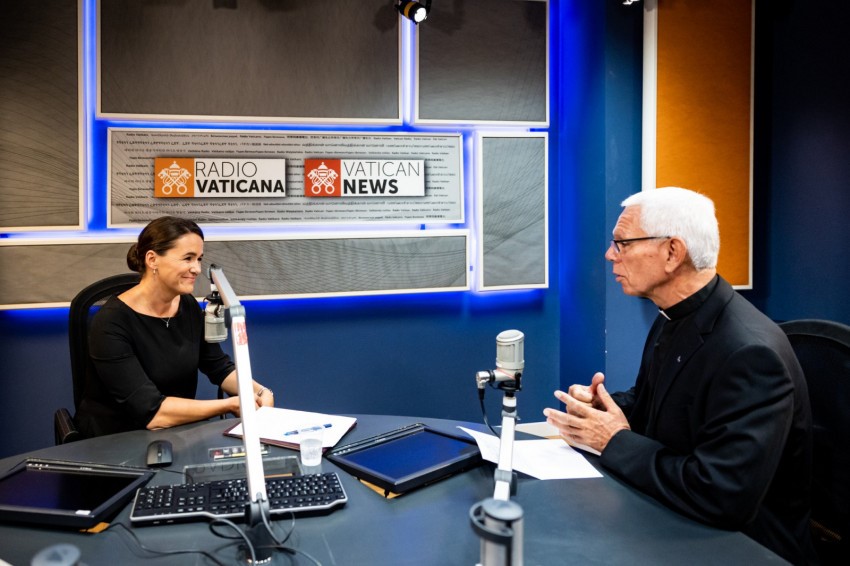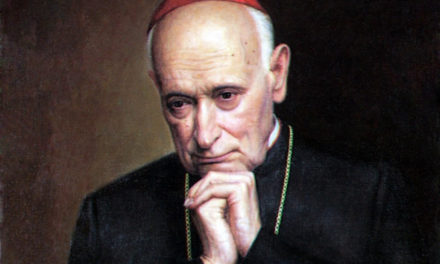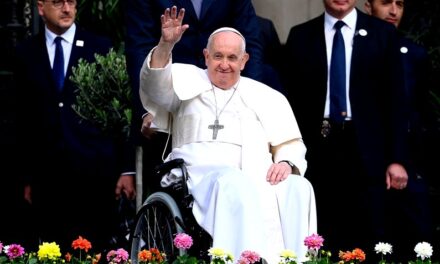As is well known, Pope Francis received the President of the Republic Katalin Novák on August 25. After the audience, the lady president gave an interview to László Vértesaljai, head of the Hungarian editorial office, in the Vatican Radio studio, which was published by Magyar Kurír. Here are some excerpts from the conversation:
- It is with great affection that I greet President Katalin Novák in the studio of the Vatican Radio, who came out of the Holy Father's study an hour ago, where he had a face-to-face conversation with Pope Francis. I would like to start the interview right away with this: there was no need for an interpreter for the design, since you speak Spanish. How did the Holy Father accept your knowledge of the Spanish language?
– I also warmly greet the radio listeners and thank you for the opportunity to talk here. My heart is still full of happiness, because I was able to attend a very valuable meeting, a private audience with the Holy Father.
I came up with the idea at the last minute, because I don't avoid spontaneity either, and Pope Francis is also famous for being a partner in spontaneous things, so I came up with the idea at the last minute, why should we use help after all, if, as I hope, with the Spanish I'll manage.
I feel it was a good decision, the Holy Father really appreciated this, for a long time, I think I was with him for at least forty minutes, face to face the whole time, and it created such an atmosphere, just the fact that there were only two of us in his room, that we could really speak honestly to hit with each other, and what was said there, actually, from here on, will remain only the treasure of the two of us, because it will remain for both of us in its entirety.
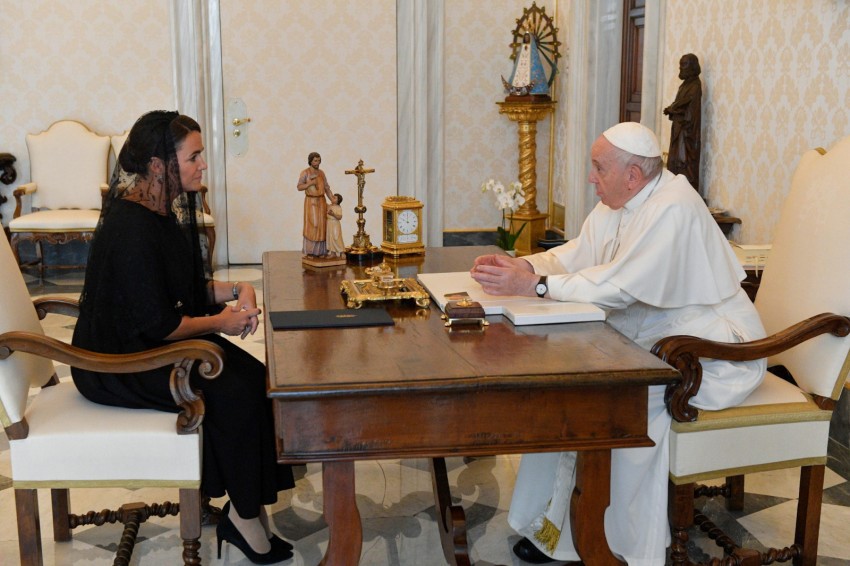
– From this common treasure, I would like to ask about what can be shared with us. What could be interesting for us and for our listeners through the radio, as an important topic that was touched upon during the conversation?
- Right at the beginning, we talked about, perhaps now also in the light of the war, why it is "a possibility" that a female leader is at the head of Hungary. The Holy Father said how much he values women leaders and that, according to his judgment, conviction and personal experience, when there is trouble, when there are conflicts in the world, when there is a need for women's intuition, women's subtlety, women to the ability to mediate between parties in conflict, or to draw a lot from what we have learned in raising children; when we are trying to solve a situation, so in such a situation how much does it matter that there are female leaders.
That is why Pope Francis specifically welcomed the fact that a female head of state is now at the head of Hungary, and started the conversation with that. I felt confirmation in her words, since I myself felt that as a woman, especially as a mother of three children, even in a difficult situation, which in a certain sense seems hopeless, this female approach can help in the given case: to detach ourselves from one's own, entrenched conflict, from a stuck negotiation, to make some progress.
I also asked for the Holy Father's prayer and his help in how I could, as the head of state of Hungary, effectively act for the sake of peace in this difficult international situation.
After all, for both of us, and I can say that it is also important for the Vatican and Hungary, that there should be peace here in our neighbor, in Ukraine, in Europe and in the conflict-ridden part of the world, because this is our common interest. We speak out and act in the hope and for this.
- Looking at a war conflict as a politician is one thing. Looking at the same thing as a woman, as a mother of a family, already qualifies and changes. What does your status as a woman and mother of a family contribute to your political opinion?
– Let's stick to the war conflict. We have three children, the oldest is an adult young man, he just turned eighteen in January. This means that if a war situation arose, he would also be conscripted and taken to the front. Therefore, as a mother, I can deeply feel what it's like to be the mother of an adult and an almost-adult son, and what it's like now for those Transcarpathian Hungarian mothers who know their children on the front and don't know if they'll ever see them again. What is it like for those mothers in Transcarpathia or Ukraine, or indeed in Russia, who have to say goodbye to their husbands, brothers, and children, and what it is like to send our sons to the front in the war. We also talked about this with Pope Francis, what it means, what kind of extra that privilege gives, the divine gift that we, women, can give birth and be mothers. Related to this, there was talk about families, helping traditional families, and how little is undeservedly talked about today about how much it means to live in a family, how much this gift, the ability to give life, means.
How much it means when a man and a woman connect their lives, when they sanctify their relationship in marriage, when they stick together for a long time. My husband and I are celebrating our twentieth wedding anniversary this year, and he accompanied me to the Vatican.
So this was also discussed, as was the visit of the Holy Father next year.
"I mean…"
– Because I personally handed the Holy Father an invitation letter and confirmed that we would like him to visit Hungary next year. This time, compared to his visit last year - which we were able to enjoy and be grateful for at the International Eucharistic Congress, but it was very short, he would now come to Hungary for a longer visit. I expressed to him our desire and our hope that his visit would take place next year, and the Holy Father confirmed his intention to come to Hungary. He said that his plans include a visit to Hungary for next year, and that it could be realized in the first half of the year.
"Let's trust him!" But returning to the family, I think that in addition to the personal testimony about the family, the Hungarian family model was also discussed, which is exemplary not only in Europe, but worldwide. You, you were the most prominent representative of this!
- For eight years, I was given the opportunity to work for families in the Hungarian government, to think and do things to make it easier to conceive and raise children in Hungary, and to remove the obstacles from young people that stand in the way of having children and starting a family, since young people basically - especially in Hungary - want children, they want to live in a family.
We can see the results of this - and we talked about this with the Holy Father - as the number of marriages has doubled. If we consider that ten years ago there were only 35,000 marriages in Hungary, now it has already exceeded 72,000 last year...
"Did you tell the Holy Father that?" If so, how did you receive it?
– I told him the numbers, and he was very surprised, because on the one hand, he was talking about exactly that, and he sadly expressed how "out of fashion" marriage is, for example, in Italy or throughout Europe, in a significant part of the developed world, marriage is being renounced. He was just talking about why it is that although many people choose to live together, they still renounce the sanctity of marriage. That is why he was so surprised that the trend in Hungary was exactly the opposite, and that there was such a significant increase.
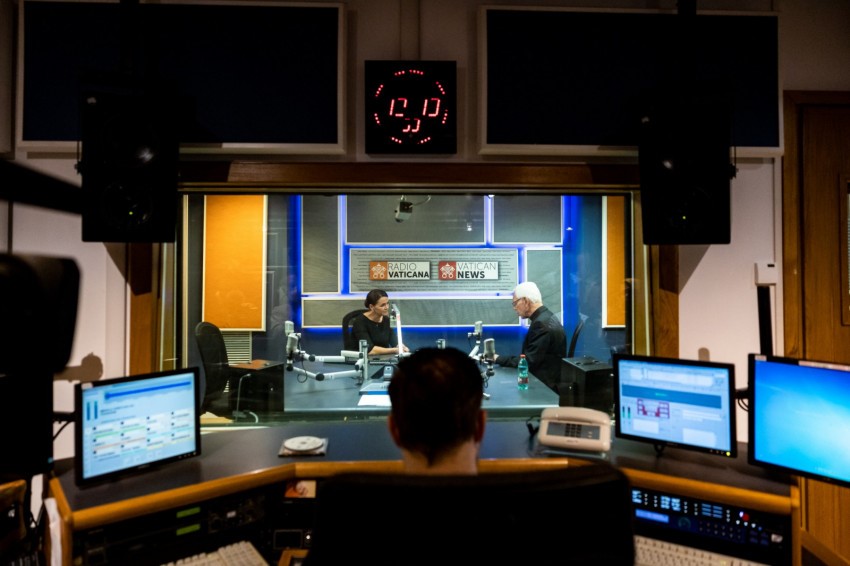
- Thank you very much. Do you have another program in Rome?
- There is an organization called the International Network of Catholic Legislators. This is an organization that I have been a member of for a long time, although I am a Protestant, I am a professing Reformed Christian, but I am actively involved in this organization, and now we have our annual meeting. This meeting is not open to the public, so I can't even tell you who the participants are, but I can say that they come from all over the world, from the United States, from Africa...
"Pope Francis is receiving them right now..."
- Yes, they are at the papal audience right now, I was also able to participate in our joint audience with Pope Francis last year, they are there now, and we will meet in Frascati afterwards. There is a time when we are talking about these important issues for a few days, so when I say that it is taking place not to the exclusion of the public, but not in front of the public, it means that we have the freedom to let's talk as openly as possible about the current dangers that threaten us, whether it's about war or this ideological warfare that was discussed, or about anti-life, and to strengthen our alliance, to feel that we are not fighting all this alone, but on the one hand with the blessing of the Lord God, and this is the most important element of the meeting, with our common Christian faith. The connecting link is Jesus Christ, who connects us here in this togetherness. So we turn to Him, we cling to Him, we ask for His help, and this is what was also discussed with Pope Francis.
Dear Mrs. President, dear Katalin, I am grateful for this personal report, thank you for sharing what you talked about with the Holy Father, and I ask for the aforementioned divine blessing on behalf of the students, may it fill your heart, your work and serve the good of the country, Thanks!
"Thank you very much for the conversation."
You can read the entire interview in Magyar Kurír

